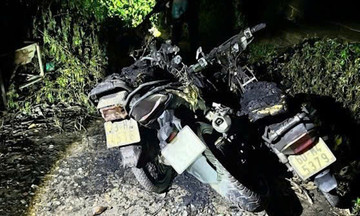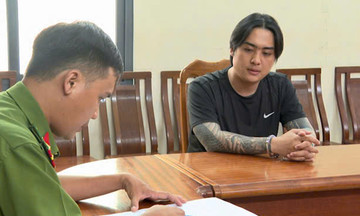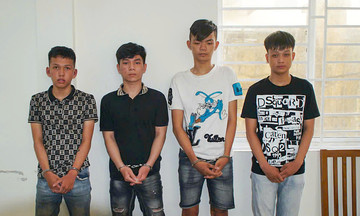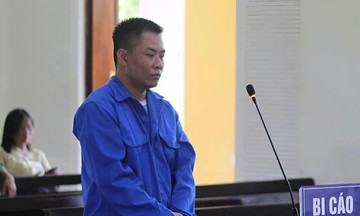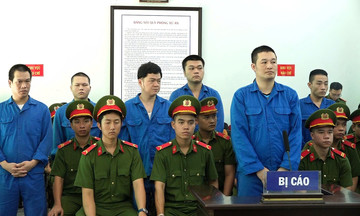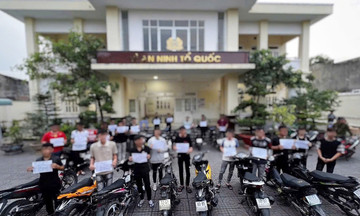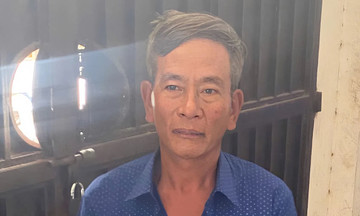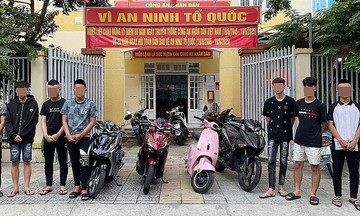On 30/7, the Ministry of Public Security, in coordination with the Vietnam Women's Union and the Ho Chi Minh Communist Youth Union, launched a national campaign against human trafficking with the theme "Human trafficking is organized crime - End exploitation."
Deputy Prime Minister Nguyen Hoa Binh, attending the launch, assessed the situation of human trafficking globally and in Vietnam as quite complex. This type of crime not only seriously violates human rights and individual dignity but also negatively impacts many aspects of society.
He called on every family and individual to take decisive action to eliminate this dangerous crime and protect the safety of women and children.
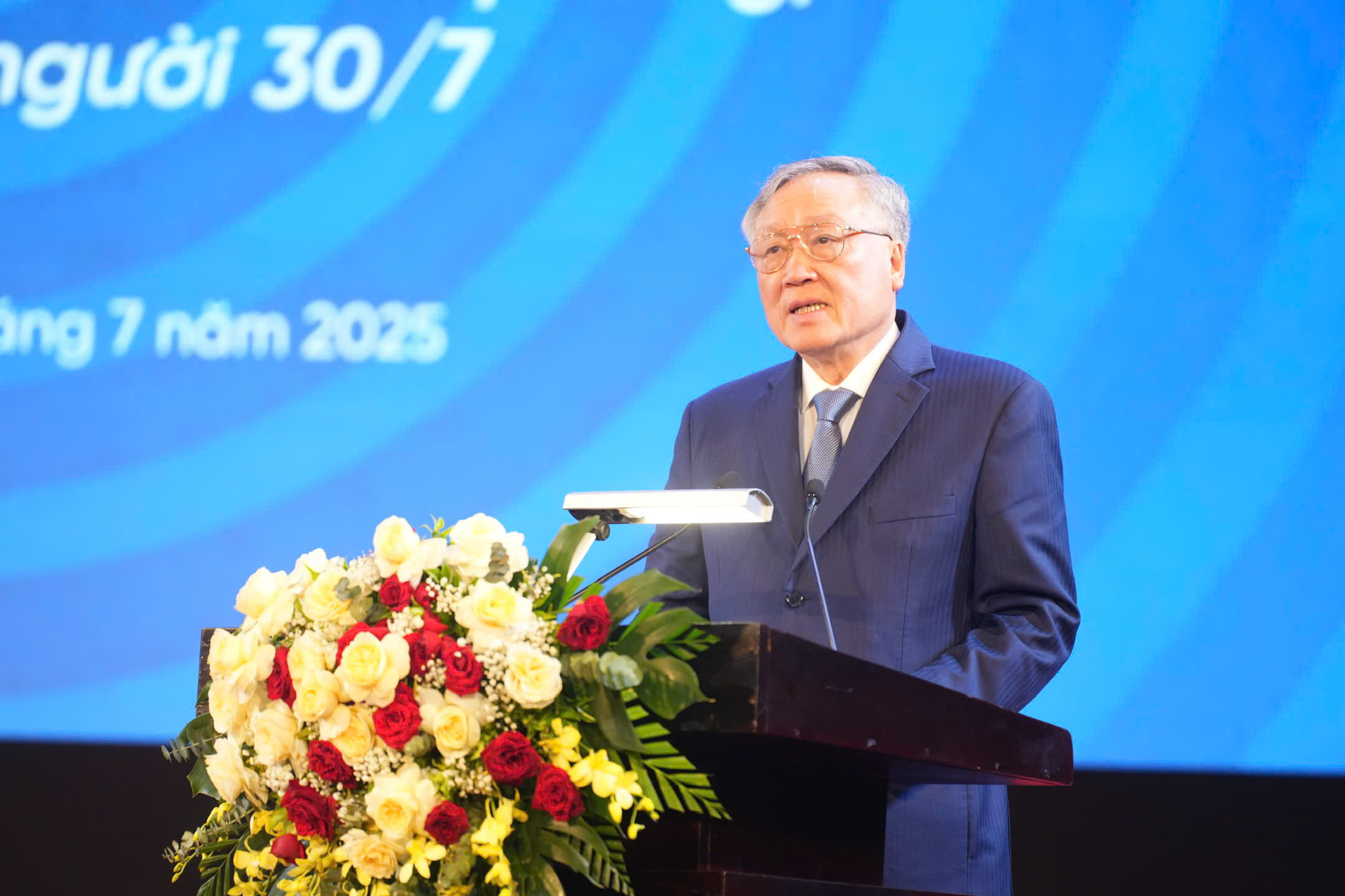 |
Deputy Prime Minister Nguyen Hoa Binh launches the campaign against human trafficking. Photo: Vo Thanh |
Deputy Prime Minister Nguyen Hoa Binh launches the campaign against human trafficking. Photo: Vo Thanh
Ministry of Public Security statistics show a rising trend in human trafficking with increasing sophistication. In 2024, nationwide, authorities investigated 163 cases involving 455 suspects and 500 victims; 91 new cases were prosecuted with 237 suspects and 336 victims. In just the first six months of 2025, authorities prosecuted and investigated 120 cases with 365 suspects and received 34 new cases with 101 suspects.
Victims are primarily female (66.67%) with no foreigners or people with disabilities among them. Of the 22 cases newly prosecuted by the Criminal Police Department, 28% of victims were trafficked abroad, while 72% were trafficked domestically.
Traffickers lure victims with promises of "easy jobs with high salaries," marrying foreigners for a wealthy life, or exploiting victims' financial difficulties and dependencies (loans and inability to repay debts), coercing and forcing them to work abroad to repay debts. The suspects often pose as overseas "agents" responsible for finding and bringing Vietnamese people to work for online scam centers, receiving referral fees of up to hundreds of millions of dong.
Suspects organize illegal border crossings for victims through trails and openings, selling them abroad for work or illegal marriages for profit. Domestically, online trafficking of infants is increasing, exploiting adoption practices and falsifying documents to legalize procedures for illicit gains.
Since the beginning of the year, the Peace House hotline (1900 96 96 80) of the Center for Women and Development (Vietnam Women's Union) has received 1,211 calls, a nearly 70% increase compared to the same period last year, and conducted 1,600 consultations, reaching 85%.
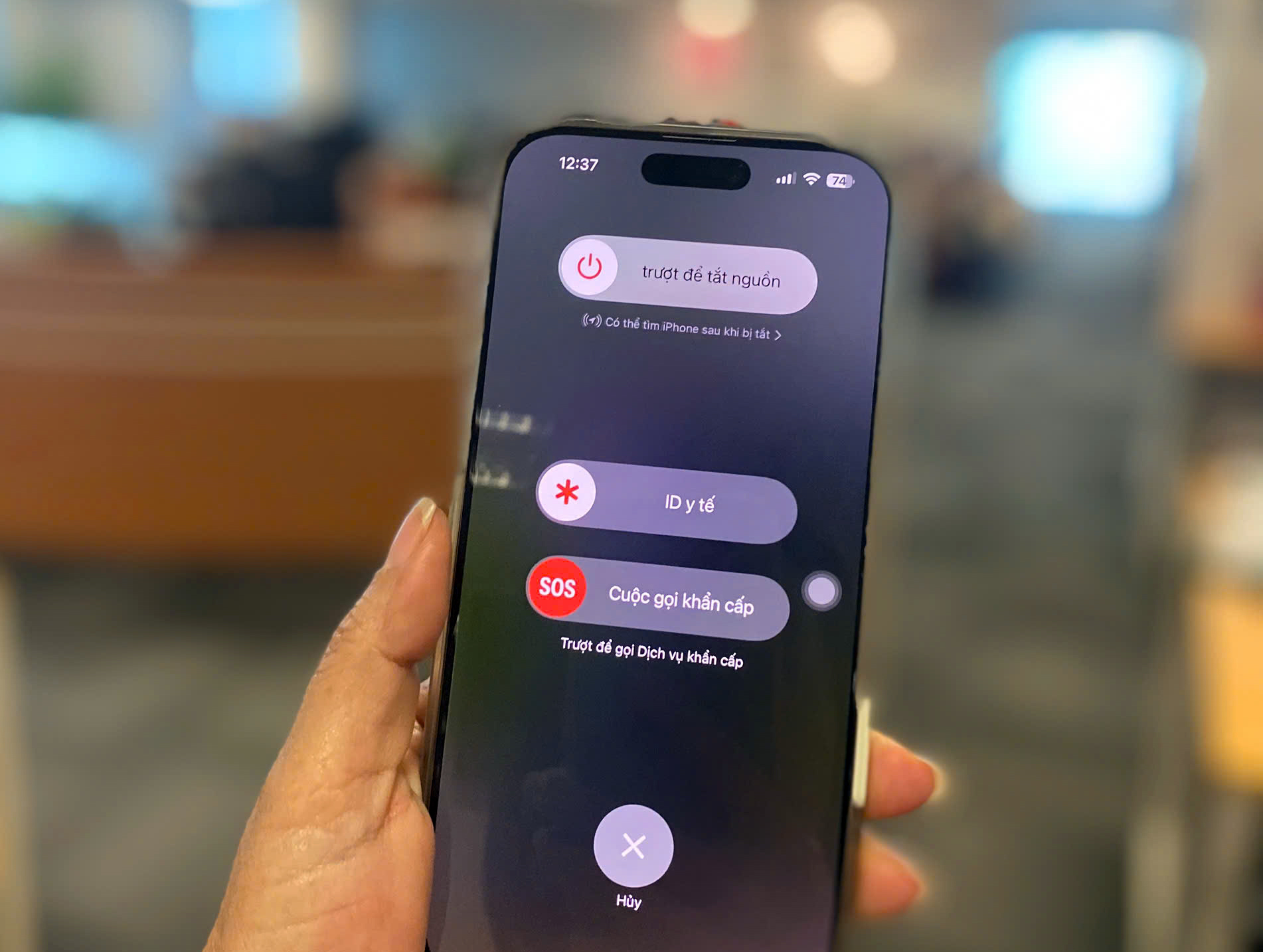 |
Police advise citizens to inform relatives or the nearest authorities if they become victims of human trafficking and to use the SOS feature on their phones. Photo: Quoc Thang |
Police advise citizens to inform relatives or the nearest authorities if they become victims of human trafficking and to use the SOS feature on their phones. Photo: Quoc Thang
Identifying 5 human trafficking 'traps'
Ho Chi Minh City Police have identified common human trafficking "traps" and provided guidance on prevention, as the complex social media landscape makes anyone lacking vigilance a potential victim. "In the digital age, public vigilance and composure are the strongest firewalls against increasingly sophisticated cybercrimes," an investigator told VnExpress.
Humanitarian trap: Recent investigations reveal criminal gangs targeting pregnant women in need, offering support and shelter. After gaining their trust, they force the mothers to give birth and then forge legal documents to sell the babies under the guise of "humanitarian adoption."
"This disguised infant trafficking is occurring silently but dangerously, directly impacting the lives and futures of victims," the investigative agency said.
For prevention, police advise pregnant women in need to seek help from social protection centers or local women's associations; they should not rely on assistance from strangers.
Marriage and tourism trap: Criminals engage in online courtship, promising a prosperous life, inviting victims on trips to meet families, or brokering marriages with foreigners (China, South Korea, etc.). In reality, victims are trafficked across borders for forced marriage, sexual slavery, or forced labor in brothels.
Police urge caution with online relationships promising life-changing opportunities; avoid travel, marriage, or going abroad based on unclear invitations; share plans with family and friends, and maintain constant contact.
Easy job, high salary trap: Criminal gangs post job advertisements with high salaries and no degree requirements, connect with victims via Zalo, Facebook, and Telegram, and instruct them to travel to the border for pickup.
In truth, victims are sold to criminal organizations in Cambodia, Laos, and Myanmar, forced into online scams, gambling, money laundering, and smuggling. Resistance results in beatings, coercion, ransom demands, or being resold multiple times. Vietnam is also exploited as a transit point for deceiving foreigners.
According to the police, this is a "very old" trick, but many still fall prey. People should not trust online offers of high-paying, easy jobs; thoroughly verify the location and recruiting organization, and the means of transportation; inform family of travel plans before leaving, and always stay in contact.
Debt and attractive job trap: Criminals target female students living away from home, young workers, enticing them with loans for designer goods, rent, or tuition to create a debt trap; or they offer high-paying jobs at bars, karaoke parlors, and restaurants. When victims cannot repay or have accepted the job, they are forced to work in disguised establishments, sexually exploited, confined, and beaten if they resist.
For prevention, avoid borrowing or accepting financial assistance from strangers or new acquaintances; be cautious of job offers at bars, karaoke parlors, and restaurants; maintain contact with family and friends for timely warnings.
Humanitarian organ donation trap: Criminals exploit financial hardship, enticing victims to sell body parts like livers and kidneys for high prices. This tactic preys on greed by promising 3-4 times the actual value, leading victims to willingly travel to Thailand or Cambodia. There, they are held captive, their organs harvested without payment, or sold to fraudulent companies and casinos. Many victims have more organs taken than agreed upon, resulting in disability or death.
Do not trust offers to sell organs for high prices; contact authorities or social organizations if facing financial difficulties, and avoid traveling abroad independently.
Responding as a victim
Stay calm and discreet, avoid arousing suspicion; memorize the location and characteristics of the criminals, including vehicle license plates; inform relatives or the nearest authorities, find a way to escape to safety; do not attempt to rescue others as this can be dangerous; use the SOS feature on your phone.
Citizens can also call the free 24/7 National Hotline 111 for advice and emergency assistance.
Vo Thanh - Quoc Thang




